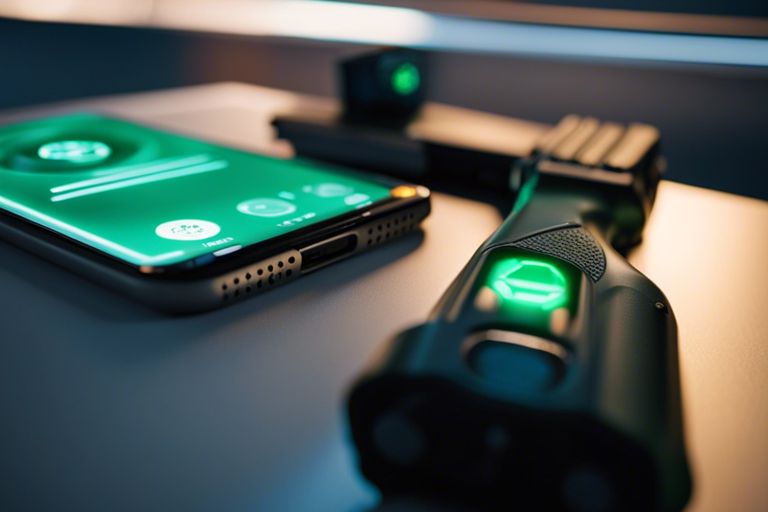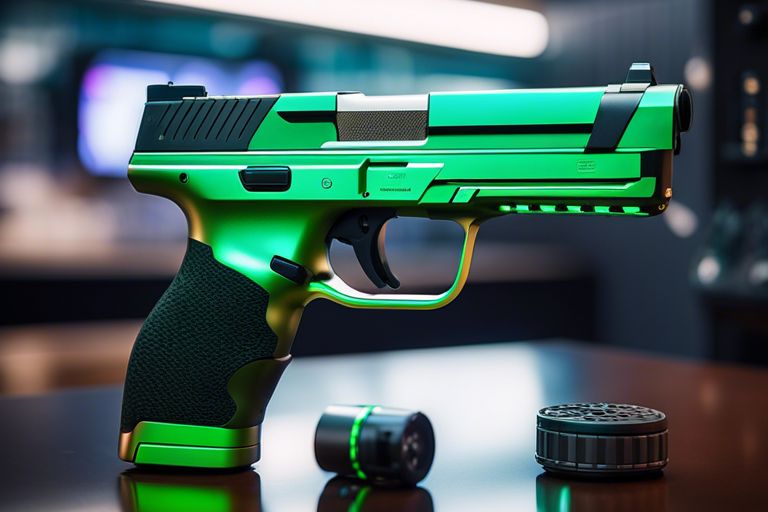In a world where firearm safety and responsible self-defense are increasingly important topics, the discussion around smart guns has gained significant attention.
Smart guns, also known as personalized firearms, utilize technology to help prevent unauthorized use and enhance safety. The potential implications of smart guns, both positive and dangerous, have sparked debates among gun owners, activists, and lawmakers alike.
In this article, we will delve into the concept of smart guns, their reduction of firearm deaths, and their reliable and effective self-defense capabilities, in order to determine whether they could indeed be a viable option for those seeking a safe and responsible means of protection. To learn more about smart guns, you can also refer to this article on Smart Guns: Reduction of Firearm Deaths, Reliable Self-Defense, and More.
Key Takeaways:
- Smart guns offer potential for safe and responsible self-defense: Smart guns have the potential to prevent unauthorized access to firearms, reducing the risk of accidents and misuse.
- Reliability and technology are still evolving: While smart gun technology has made strides in recent years, concerns about reliability and susceptibility to hacking still remain.
- Lack of widespread availability and acceptance: Smart guns are not yet widely available in the market and face resistance from gun enthusiasts, law enforcement, and the firearms industry.
- Legislation and investment are key factors: The implementation and adoption of smart guns will depend on legislative support, along with investment in research and development to improve the technology.
- Educating and raising awareness is crucial: Promoting the benefits of smart guns and dispelling myths surrounding their capabilities is essential in shifting public perception and acceptance.
Technological Insights
The development of smart gun technology has brought about significant advancements in the realm of firearm safety and responsible self-defense. The integration of cutting-edge technology in firearms has sparked a wave of innovation, with the potential to revolutionize the way people approach gun ownership and usage.
How Smart Guns Work
The concept of smart guns revolves around the incorporation of biometric authentication, RFID technology, and other advanced features to ensure that guns can only be operated by authorized users. The biometric authentication system typically involves fingerprint recognition or grip recognition, allowing only approved individuals to fire the weapon. Additionally, RFID technology can be utilized to create a proximity-based locking system, further enhancing the security of smart guns.
Innovations in Smart Gun Technology
Technology in smart guns has seen remarkable advancements, with the development of personalized user profiles and integrated safety features. The use of personalized user profiles enables guns to be programmed to recognize specific users, providing an added layer of security. Furthermore, the integration of safety features such as gunshot detection and automatic locking mechanisms enhances the overall safety of smart guns.
Guns equipped with these innovations have the potential to drastically reduce the risk of unauthorized use and accidental firearm-related incidents, making them a promising option for those seeking safe and responsible self-defense solutions.
Safety and Effectiveness
Some gun owners may have reservations about the safety and effectiveness of smart guns. According to a recent survey conducted by The Range 702, a shooting range and gun store, many gun owners are skeptical about the future of smart gun technology. However, advancements in the field continue to progress, and smart guns offer several potential benefits in terms of safety and effectiveness.
Comparison to Traditional Firearms
Comparison between Smart Guns and Traditional Firearms
| Traditional Firearms | Smart Guns |
| Require physical manipulation to discharge | Use biometric or RFID technology for user verification |
| Higher risk of unauthorized use | Reduced risk of unauthorized use due to personalized features |
Any consideration of the safety and effectiveness of smart guns should include a comparison to traditional firearms. The use of biometric or RFID technology for user verification in smart guns offers a significant advantage over traditional firearms, as it reduces the risk of unauthorized use due to personalized features.
Potential to Reduce Accidents and Unauthorized Use
Any discussion about the potential to reduce accidents and unauthorized use with smart guns is essential. This technology has the potential to significantly decrease accidental shootings and prevent unauthorized individuals from using firearms. Smart guns offer an added layer of security that traditional firearms do not provide, making them a promising option for those concerned about gun safety.
Market and Legal Considerations
Now, let’s consider the market and legal considerations surrounding smart guns for self-defense. This includes consumer demand and availability, as well as the legal and regulatory landscape that surrounds these products.
Consumer Demand and Availability
An increasing number of consumers are seeking smart guns as an option for self-defense. This has led to a growing availability of smart gun products in the market. Smart guns offer a technological solution for those who want to ensure that their firearms can only be used by authorized persons, providing an added layer of safety and security. However, the availability of smart guns varies across different regions, and in some cases, these products may be less accessible than traditional firearms due to limited distribution and higher costs.
Legal and Regulatory Landscape
Any discussion of smart guns must take into account the current legal and regulatory landscape. Laws and regulations surrounding smart guns vary from state to state and country to country, with some jurisdictions actively promoting the development and adoption of smart gun technology, while others have implemented restrictions or mandates. Additionally, there are concerns about the reliability and effectiveness of smart gun technology, which has led to debates and discussions surrounding their legal usage.
Consumer safety, Second Amendment rights, and the potential impact on law enforcement are some of the key considerations within the legal and regulatory landscape. It’s essential for consumers to be aware of the laws and regulations pertaining to smart guns in their area, as well as to stay informed about any developments in this rapidly evolving space.

Societal Impact
Unlike traditional firearms, smart guns have the potential to significantly impact society in terms of gun safety and responsible self-defense. As new technologies emerge, it’s important to consider the potential benefits and drawbacks of incorporating smart guns into our communities.
The Role in Self-Defense
The introduction of smart guns could revolutionize the way individuals approach self-defense. The ability to prevent unauthorized use and tailor the accessibility of firearms to responsible owners has the potential to provide a heightened sense of security for individuals and families.
Implication for Law Enforcement and Civilian Use
Impact on law enforcement and civilian use of firearms will be significant, as the adoption of smart guns may require law enforcement agencies to rethink their training and protocols in order to adapt to the new technology.
Role of smart guns in civilian use will also lead to efforts to educate the public and promote responsible ownership, while also raising concerns about the reliability and security of the technology.
Challenges and Controversies
Your consideration of smart guns for self-defense is crucial. While the concept of smart guns is promising, there are several challenges and controversies that need to be carefully examined before widely adopting this technology.
Reliability Concerns
The reliability of smart guns has been a subject of concern for many individuals. There have been instances of smart guns failing to function properly in critical situations, raising questions about their dependability in life-threatening scenarios. In a self-defense situation, any malfunction or delay in the operation of a firearm could have devastating consequences. Additionally, there are worries about the potential for hacking or tampering with the technology, which could compromise the safety of the user.
Ethical and Privacy Issues
Issues surrounding the ethical and privacy implications of smart guns have also been at the forefront of the debate. Some argue that the use of smart guns could infringe on individual rights and freedoms, as the technology could enable tracking and monitoring of firearm usage. There are concerns about government access to the data collected by smart gun technology, raising questions about privacy and potential misuse of information.
Plus, there is a lingering question of ethical responsibility and accountability in cases where smart gun technology fails to perform as intended, leading to potentially dire consequences.

Are Smart Guns a Viable Option for Safe and Responsible Self-Defense?
Conclusively, smart guns present a promising option for safe and responsible self-defense. With the ability to only be fired by authorized individuals, smart guns can help prevent unauthorized use, theft, and accidental shootings. While the technology is still evolving and facing some challenges, the potential for increased safety and security is undeniable. As advancements continue, smart guns have the potential to be a key tool in promoting responsible gun ownership and reducing firearm-related accidents and violence.
Smart Guns for Safe and Responsible Self-Defense FAQ
Q: What are smart guns?
A: Smart guns, also known as personalized or user-authorized firearms, are firearms equipped with technology that allows them to be fired only by authorized users. This technology can include RFID, biometric, or Bluetooth authentication.
Q: Are smart guns a viable option for self-defense?
A: Smart guns can be a viable option for safe and responsible self-defense. They can prevent unauthorized individuals, such as children or thieves, from operating the firearm. This can contribute to overall safety and reduce the risk of accidental shootings.
Q: Are smart guns reliable?
A: The reliability of smart guns has improved over time, and many models now demonstrate a high degree of functionality. However, as with any technology, there can be occasional issues with authentication or access. It is important for users to thoroughly test and understand the limitations of their smart gun.
Q: What are the potential drawbacks of using a smart gun for self-defense?
A: One potential drawback is the risk of technology failure. If the authentication technology malfunctions, it could prevent the user from firing the gun when needed. Additionally, some individuals may be concerned about the potential for hacking or electronic interference.
Q: Are there legal or regulatory barriers to the adoption of smart guns?
A: In some regions, there have been efforts to mandate the adoption of smart gun technology. However, these efforts have faced resistance from some gun rights advocates. As a result, the availability of smart guns may be limited in certain areas, and there may be legal barriers to their widespread adoption.
